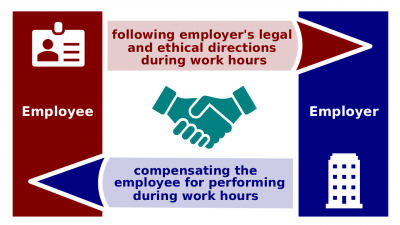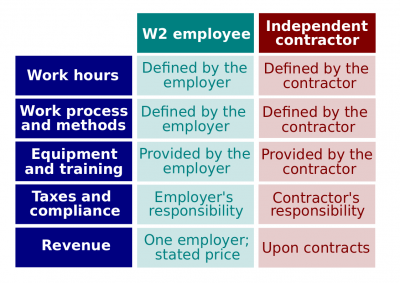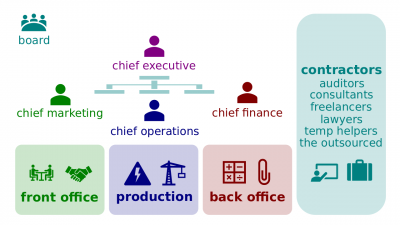Work Sellers
Work Sellers (hereinafter, the Lectio) is the second lesson part of the Employment Essentials lesson that introduces its participants to employment and related topics.
This lesson belongs to the Introduction to Employment session of the CNM Cyber Orientation. The Orientation is the second stage of the WorldOpp Pipeline.
Contents
Content
The predecessor lectio is What Employment Is.
Key terms
- Work seller. Any individual who is in the business of selling his or her work time to employers. The sellers include employees, employment candidates, and pretty much every seller on the job market.
- Employee (in the United States, also known as a W2-employee). Any individual employed by an employer for some compensation that most likely includes wages or a salary.
- Independent contractor (in the United States, also known as a 1099-form worker) is a contractor, who is an individual who provides any legal entity with his or her products, usually, services. The Contractor's products are specified under terms of a contract or a verbal agreement.
- Self-employed. The state of working for oneself as a freelance or the owner of a business rather than for an employer.
- Apprentice. Any employee who is not fully qualified to perform his or her workload, but agreed to work usually for a part of the fully-skilled worker compensation under the condition of educational assistance to gain the needed work-related competence.
- Volunteer. A person who does something, especially helping other people, willingly and without being forced or paid to do it.
- Employment candidate. Any candidate in a search for employment as an employee.
- Intern. A student in some professional field or recent graduate from an educational program gaining supervised practical experience in the workplace.
- Paid intern. An intern who is compensated for his or her work time at a regular employee level or some percentage of regular employee compensation.
- Unpaid intern. An intern who is not compensated for his or her work time.
Script
- Employees sell their work or, to be more precise, their work time, but not all work sellers are employees. Three categories of work sellers who are not employees include (a) independent contractors, (b) volunteers, and (c) employment candidates.
. Any individual who is in the business of selling his or her work time to employers. The sellers include employees, employment candidates, and pretty much every seller on the job market.
- Employee (in the United States, also known as a W2-employee). Any individual employed by an employer for some compensation that most likely includes wages or a salary.
- Independent contractor (in the United States, also known as a 1099-form worker) is a contractor, who is an individual who provides any legal entity with his or her products, usually, services. The Contractor's products are specified under terms of a contract or a verbal agreement.
- Self-employed. The state of working for oneself as a freelance or the owner of a business rather than for an employer.
- Apprentice. Any employee who is not fully qualified to perform his or her workload, but agreed to work usually for a part of the fully-skilled worker compensation under the condition of educational assistance to gain the needed work-related competence.
- Volunteer. A person who does something, especially helping other people, willingly and without being forced or paid to do it.
- Employment candidate. Any candidate in a search for employment as an employee.
Employee Compensations is the successor lectio.




